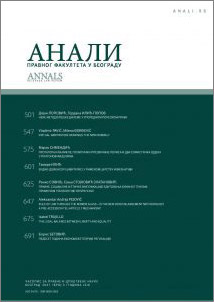
Forvm Romanvm: Prof. Dr Valentina Cvetković Đorđević lectured on „ Negotiorum gestio from Roman Law to the EU”
On Friday, the 5th of November, 2021, Prof. Dr Valentina Cvetković Đorđević gave a lecture entitled „ Negotiorum gestio from Roman Law to the EU”. She pointed out that negotiorum gestio is originally a Roman institution which wound its way through Roman law into later European legal systems, and that it stirs interest on a level which goes beyond the national, in the joint efforts to create a European civil code. She led us through the fragments of works by Roman jurists, showing that the institution came into being as a way to protect the interests of absent persons in situations where their businesses would suffer unjust damage if someone who was willing to help did not have legal means to do so. However, she pointed out that there were some conflicting tendencies there as well: in general, it’s in the interest of a business owner that nobody interferes in their affairs, but in some cases (such as in their absence), it becomes desirable. She reminded us that management of business without consent gained a more detailed shape in theory (including the name under which it is known to us today) during the XIX century, in the works of the pandectists, and pointed out the interesting fact that this institution was preceded in Roman law by an actio in factum concepta, introduced by praetors, and that it did not enter civil law until later on. She particularly spoke of the subjective element of managing an affair without consent – the will of the gestor to act in the best interest of another person (animus alienа negotia gerendi), underscoring the altruistic character of this institution. She also mentioned the form of this institution in the Serbian Civil Code, and the difference between the necessary and useful management of affairs. Considering modern legal systems, she talked of our Law on Obligations and the draft of the EU civil code. An interesting discussion followed the lecture – from discussing some hypothetical cases (what if the property of the business owner is under mortgage?), through the differences in how this institution was regulated in the Austrian and Serbian civil codes, and up to the broader subject of altruism in law.





